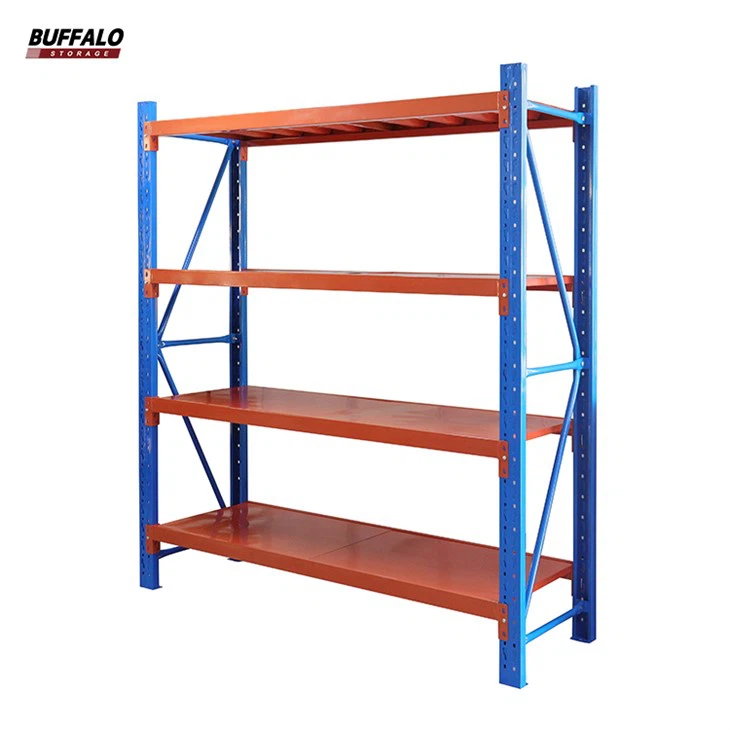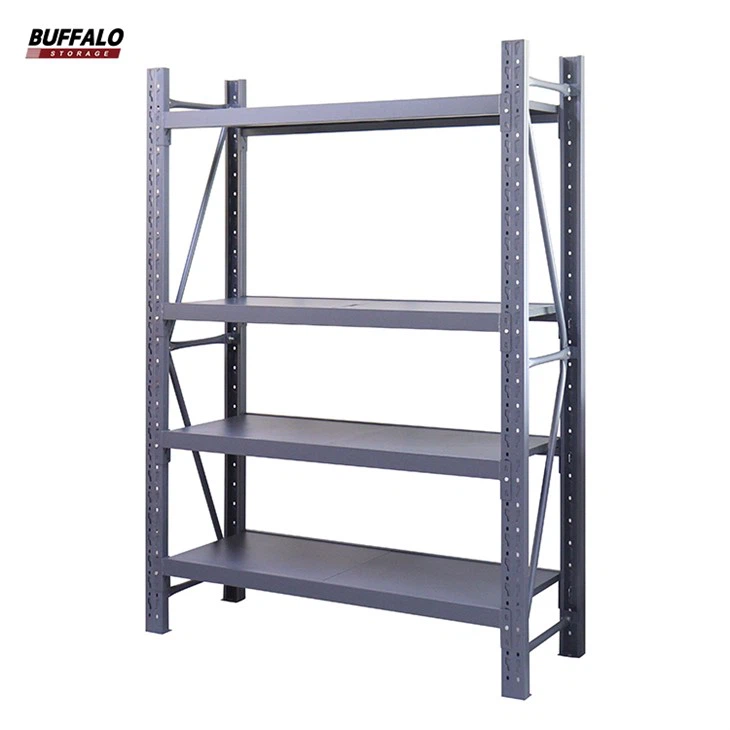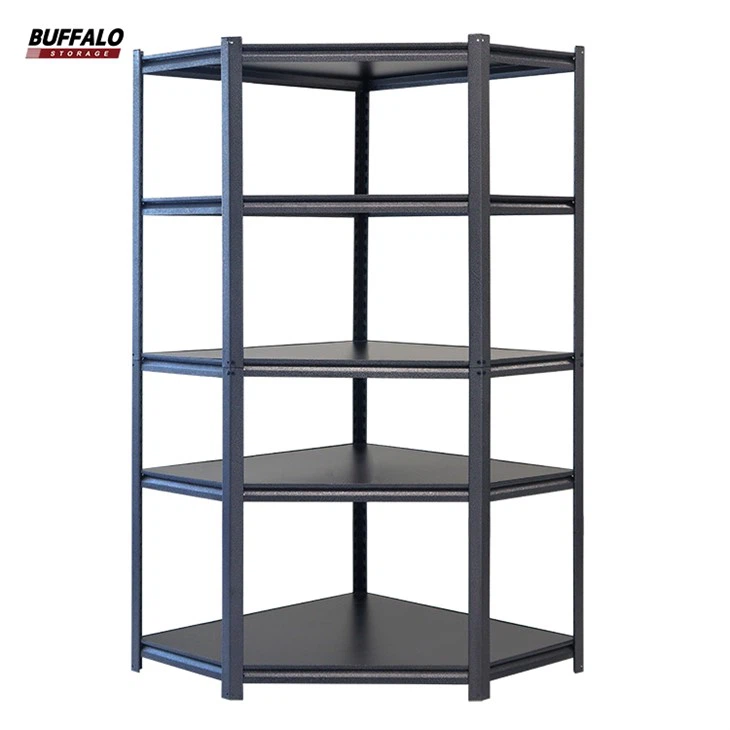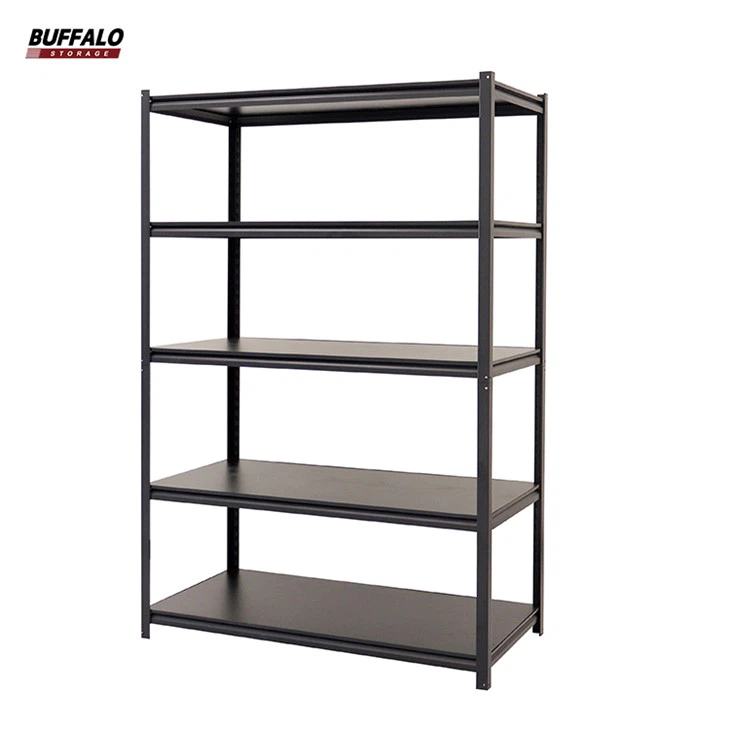The official notice issued by the U.S. International Trade Commission on May 3, 2023 stated that Chicago Edsal Manufacturing Co. Inc. has submitted reports to the U.S. Department of Commerce and International Trade regarding boltless steel shelving units from India, Malaysia, Taiwan, Thailand and Vietnam. The Commission filed an anti-dumping duty complaint. These products are prepackaged for sale.
On May 16, 2023, the U.S. Department of Commerce (Commerce) announced the launch of an anti-dumping duty (AD) investigation into prepackaged boltless steel shelving units from India, Malaysia, Taiwan, Thailand, and the Socialist Republic of Vietnam (Vietnam).
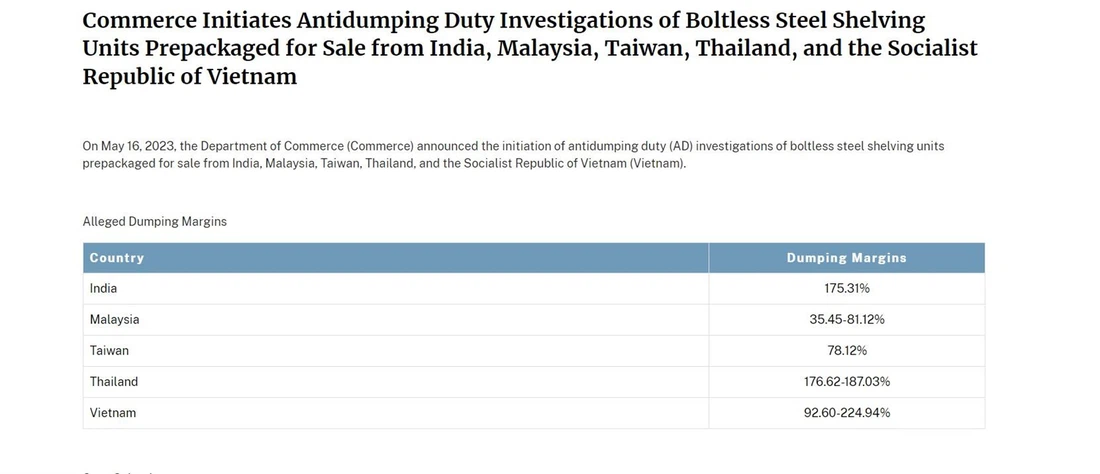
The company pointed out that the dumping margin of boltless steel shelving units in the above-mentioned countries ranged from 41.29% to 232.94%. The International Trade Commission will complete a preliminary injury ruling by June 9, 2023, and the Ministry of Commerce may make a preliminary ruling on November 21, 2023. The investigation will continue until 2024.
Let us recall a brief history of anti-dumping on shelves:
In 2013, the United States imported US$1.97 billion of the products involved in the case from China, which shows that Chinese suppliers previously occupied a large market share.
On August 26, 2014, the US Edsal Manufacturing Co., Inc submitted an application to the US Department of Commerce, requesting to initiate an anti-dumping and countervailing investigation into Chinese boltless steel shelving units.
On August 17, 2015, the U.S. Department of Commerce made a final anti-dumping ruling on China’s boltless steel shelving units and levied an anti-dumping tax of 112.68% and a countervailing duty of 13.73% on related companies in China.
Anti-dumping trade sanctions will inevitably force companies to export through other methods. The most common methods are overseas factories and re-exports.
During the period when China was subject to anti-dumping sanctions, the export data of the five Southeast Asian countries soared. It was difficult not to attract the attention of local American companies. They collected relevant data and applied for customs investigation. U.S. Customs generally relies on evidence. With the data in front of them, it is impossible. Do nothing.
Therefore, all U.S. buyers are advised to fully understand whether the origin of the product is on the list of anti-dumping countries during the procurement process to avoid increasing procurement costs.


